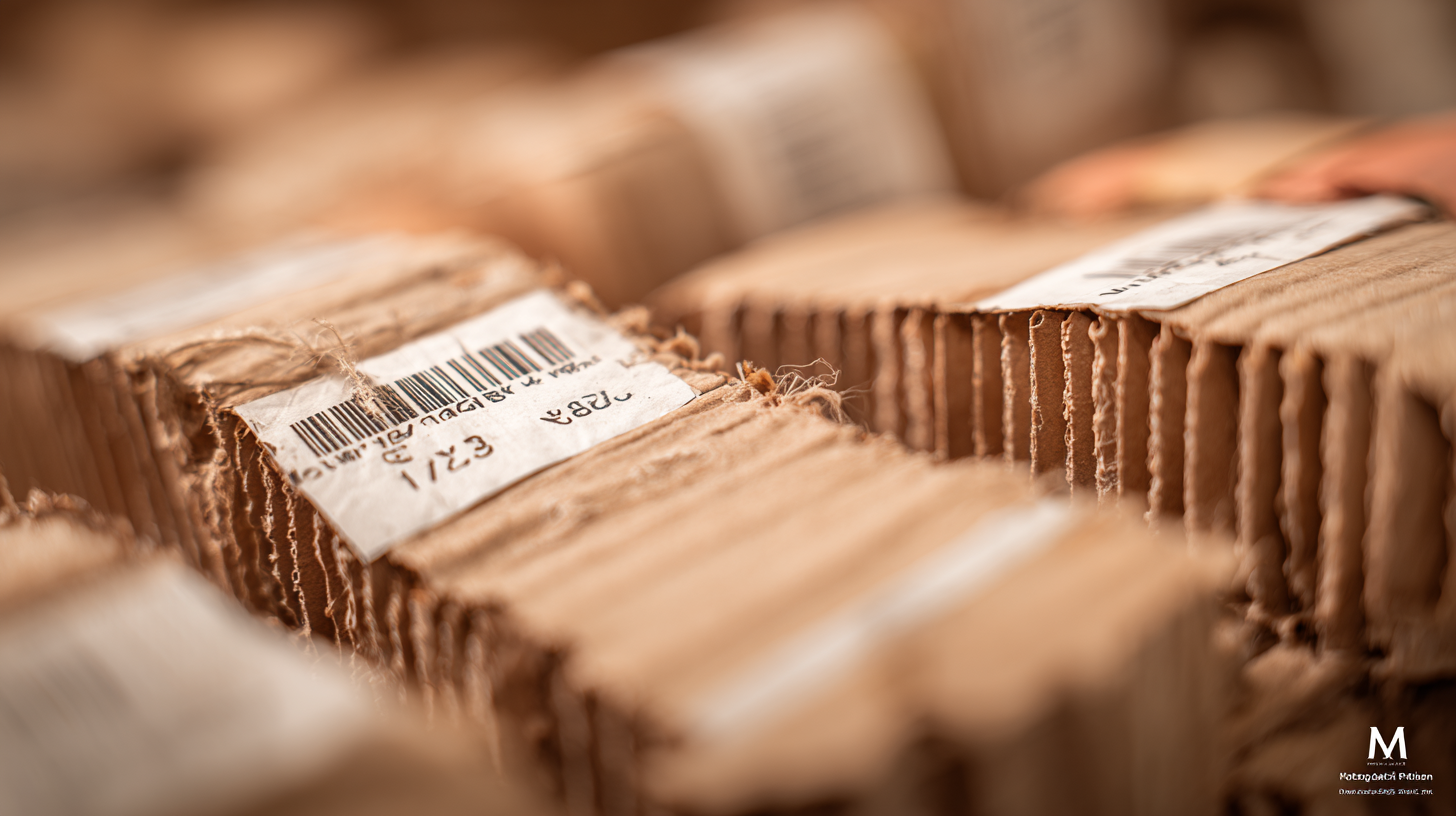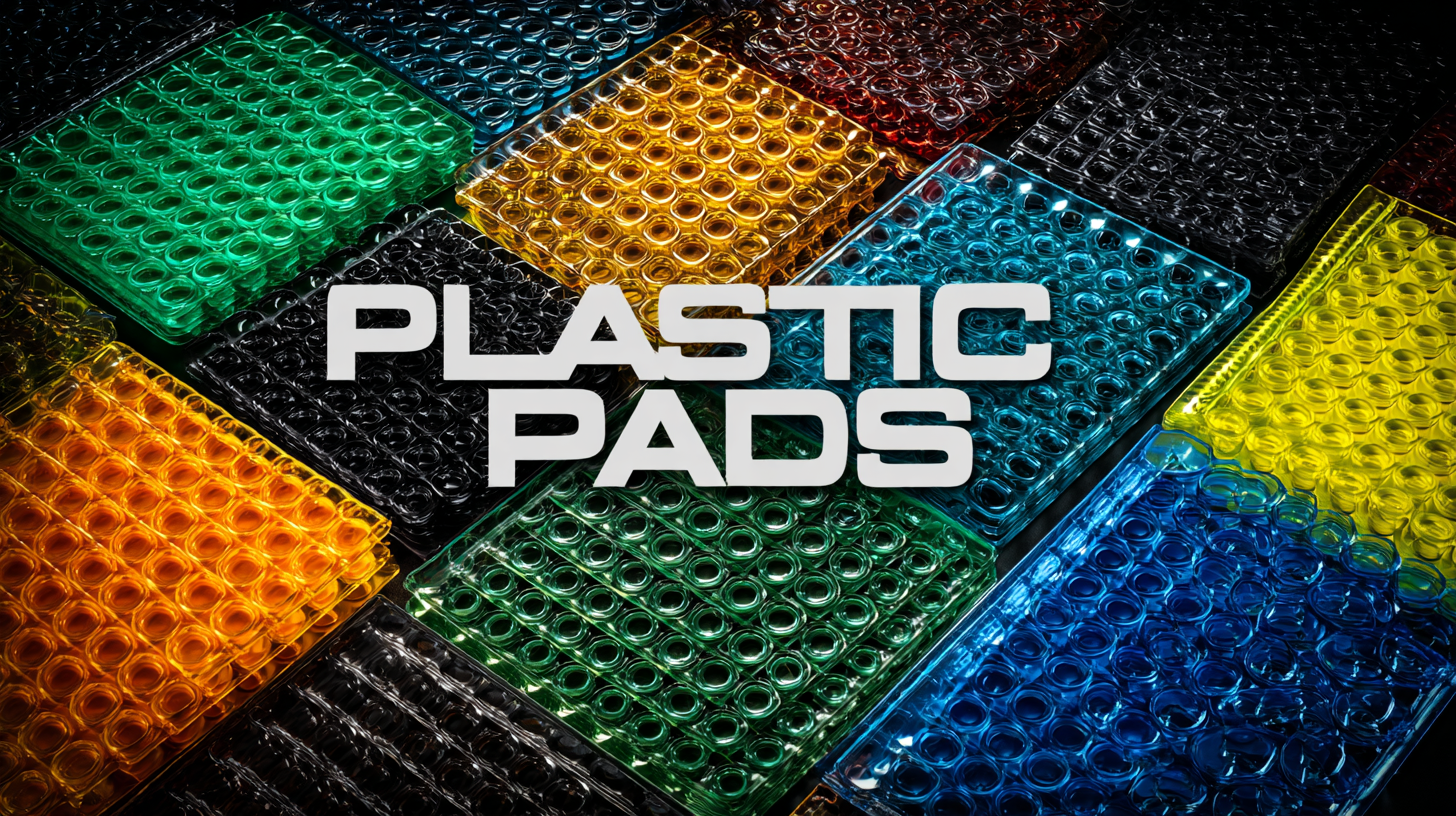
- export5@runpingpp.com
- 24 Hours Online



Industry News
Exploring the Advantages and Applications of the Best Plastic Corrugated Pads in Various Industries
In today's rapidly evolving industrial landscape, the need for innovative packaging solutions is more critical than ever. One such solution that has gained significant attention is the use of Plastic Corrugated Pads. These versatile materials are engineered to provide superior protection, support, and stability for a wide range of products across various sectors.
 From manufacturing to transportation, Plastic Corrugated Pads offer numerous advantages, such as lightweight design, moisture resistance, and recyclability, making them an eco-friendly choice for businesses looking to reduce their environmental impact. As we delve into the applications and benefits of these sturdy pads, we will explore how they can enhance efficiency and safety in diverse industries, ensuring that your operations continue to thrive in a competitive market.
From manufacturing to transportation, Plastic Corrugated Pads offer numerous advantages, such as lightweight design, moisture resistance, and recyclability, making them an eco-friendly choice for businesses looking to reduce their environmental impact. As we delve into the applications and benefits of these sturdy pads, we will explore how they can enhance efficiency and safety in diverse industries, ensuring that your operations continue to thrive in a competitive market.
Join us in this comprehensive guide as we uncover the transformative potential of Plastic Corrugated Pads and how they can revolutionize your packaging strategies.
Understanding Plastic Corrugated Pads: Definition and Key Features
 Plastic corrugated pads are versatile materials widely used across various industries due to their unique properties. These pads are made from a type of plastic that is both lightweight and durable, offering excellent resistance to moisture and chemicals. Their structure, featuring a fluted design, provides considerable strength while remaining cost-effective. This makes them ideal for applications ranging from packaging to construction, where they can serve as protective layers or supports.
Plastic corrugated pads are versatile materials widely used across various industries due to their unique properties. These pads are made from a type of plastic that is both lightweight and durable, offering excellent resistance to moisture and chemicals. Their structure, featuring a fluted design, provides considerable strength while remaining cost-effective. This makes them ideal for applications ranging from packaging to construction, where they can serve as protective layers or supports.
In addition to their robustness, plastic corrugated pads are also notable for their eco-friendliness. Many manufacturers are now producing these pads using recycled materials, contributing to sustainability efforts in many sectors. Their lightweight nature not only reduces shipping costs but also minimizes environmental impact during transport. As industries increasingly shift towards sustainable practices, the demand for such innovative materials is likely to grow, highlighting the importance of understanding their features and benefits in contemporary applications.
Benefits of Using Plastic Corrugated Pads in Industrial Applications
Plastic corrugated pads have emerged as a versatile solution in various industrial applications due to their lightweight and durable nature. One of the primary benefits of using these pads is their ability to provide superior protection for products during transportation and storage. Unlike traditional materials, plastic corrugated pads offer excellent resistance to moisture and chemicals, ensuring that items remain safe from the elements and reduce the risk of damage during handling.
In addition to protection, plastic corrugated pads are environmentally friendly and reusable, making them an attractive choice for businesses looking to enhance their sustainability practices. Their design allows for easy cleaning and maintenance, further extending their usability across different applications. Industries such as food and beverage, electronics, and manufacturing have recognized the advantages of integrating these pads into their logistics and storage solutions, contributing to increased efficiency and cost savings. By adopting plastic corrugated pads, companies can achieve a balance between operational effectiveness and environmental responsibility.
Top Industries Benefiting from Plastic Corrugated Pads: A Comprehensive Overview
 Plastic corrugated pads have emerged as a critical component in numerous industries. One of the primary sectors benefiting from these pads is the logistics and transportation industry. According to a report by Grand View Research, the global logistics market is expected to reach $12 trillion by 2023. Plastic corrugated pads play a vital role in enhancing supply chain efficiency by providing sturdy, lightweight, and moisture-resistant packaging solutions that protect products during transit. Their durability significantly reduces damage rates, which, according to the National Association of Manufacturers, can save companies up to 5% of their total shipping costs.
Plastic corrugated pads have emerged as a critical component in numerous industries. One of the primary sectors benefiting from these pads is the logistics and transportation industry. According to a report by Grand View Research, the global logistics market is expected to reach $12 trillion by 2023. Plastic corrugated pads play a vital role in enhancing supply chain efficiency by providing sturdy, lightweight, and moisture-resistant packaging solutions that protect products during transit. Their durability significantly reduces damage rates, which, according to the National Association of Manufacturers, can save companies up to 5% of their total shipping costs.
Another industry making significant use of plastic corrugated pads is agriculture. The increasing demand for fresh produce has led to the need for effective packaging solutions that can handle a variety of environmental conditions. A study by Research and Markets indicates that the global agricultural packaging market is projected to grow at a CAGR of 4.5% from 2020 to 2025. Plastic corrugated pads are utilized for transporting fruits and vegetables, providing essential support that minimizes bruising and spoilage. This is crucial in a sector where product quality directly impacts profitability.
In the manufacturing sector, the application of these pads is also noteworthy. As manufacturing processes become more automated and complex, the need for reliable transport and storage solutions grows. According to market analysis from Smithers Pira, the global protective packaging market is set to exceed $50 billion by 2024, driven by demand for lightweight and durable materials. Plastic corrugated pads contribute to this growth by offering an efficient way to organize and protect tools and components during the manufacturing process, thus optimizing workflow and efficiency.
Innovative Applications of Plastic Corrugated Pads in Packaging and Shipping
Plastic corrugated pads have become a cornerstone in various industries, particularly in packaging and shipping, due to their lightweight yet durable nature. These pads offer innovative solutions for protecting products during transportation. Their resistance to moisture and chemicals makes them ideal for use in environments where traditional packaging materials may fail. For instance, manufacturers are utilizing these pads to create custom dunnage systems that enhance product stability and reduce damage during transit.
Tips for utilizing plastic corrugated pads effectively include ensuring proper sizing for your products to maximize protection, and considering layering techniques for enhanced cushioning. Additionally, when incorporating these pads in your packaging processes, it's essential to select options that are easily recyclable or reusable, supporting sustainability initiatives within your company.
Moreover, businesses in the food industry benefit significantly from these pads, as they can maintain hygiene standards while providing the necessary support for perishable items. Employing these pads as dividers in shipping containers can streamline organization and facilitate easier access to products. Investing in high-quality plastic corrugated pads will not only safeguard your products but also optimize your overall shipping efficiency.
Advantages and Applications of Plastic Corrugated Pads
This chart illustrates the applications of plastic corrugated pads across various industries, highlighting their advantages in packaging and shipping.
Choosing the Right Plastic Corrugated Pad: A Guide for Different Needs
When it comes to selecting the right plastic corrugated pads for various industrial applications, understanding the specific needs of your operation is crucial. Plastic corrugated pads are widely recognized for their versatility and durability, making them ideal for use in industries such as packaging, construction, and agriculture. According to a report by MarketsandMarkets, the global plastic packaging market is projected to reach $650 billion by 2025, highlighting the increasing demand for reliable and efficient materials in various sectors. This drives the need to choose pads that not only meet industry standards but also offer specific benefits such as moisture resistance, lightweight properties, and ease of handling.
In selecting the appropriate plastic corrugated pad, consider factors like load-bearing capacity and environmental conditions. For instance, the food and beverage industry often requires pads that comply with safety regulations while providing adequate protection during transit. A study from Smithers Pira indicates that 63% of food packaging professionals prefer materials that maintain product integrity while minimizing waste, emphasizing the necessity for high-quality corrugated pads. Additionally, industries that involve heavy machinery, such as construction, benefit from pads with increased thickness and strength, ensuring they can withstand rigorous conditions without compromising performance. Tailoring your choice of plastic corrugated pads to your industry’s unique requirements can significantly enhance operational efficiency and product safety.